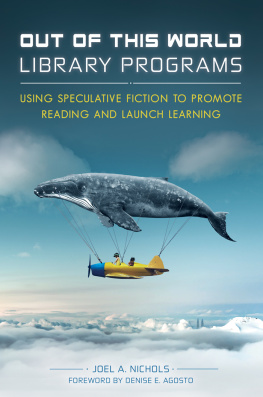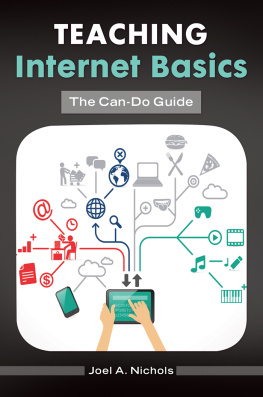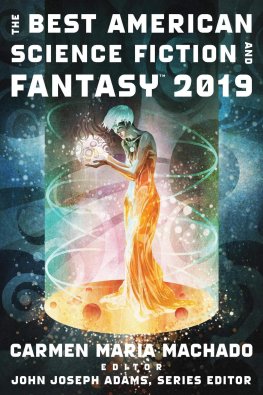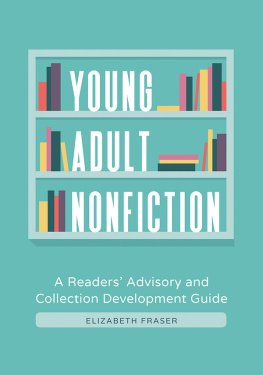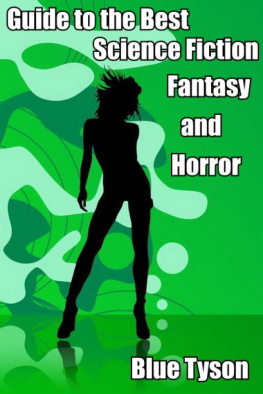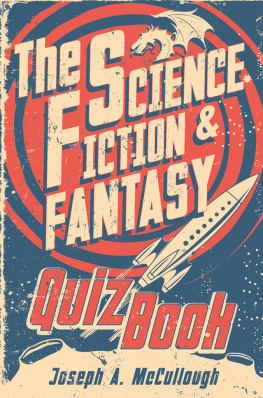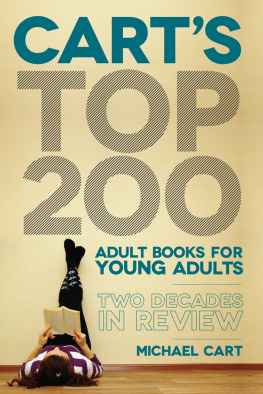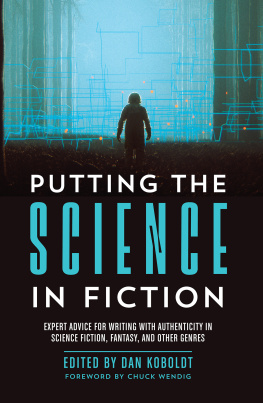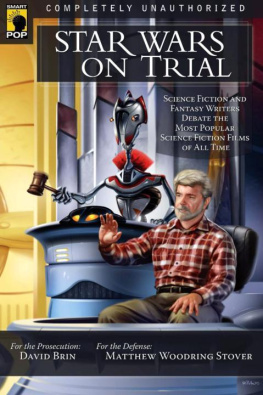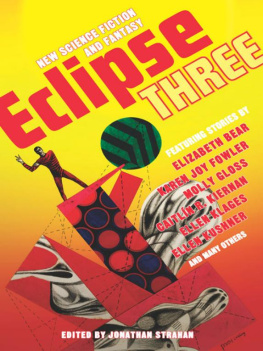Out of This World
Library Programs
Using Speculative Fiction
to Promote Reading and
Launch Learning
Joel A. Nichols
Foreword by Denise E. Agosto

Copyright 2017 by Joel A. Nichols
All rights reserved. No part of this publication may be reproduced, stored in a retrieval system, or transmitted, in any form or by any means, electronic, mechanical, photocopying, recording, or otherwise, except for the inclusion of brief quotations in a review, without prior permission in writing from the publisher.
Out of This World Library Programs: Using Speculative Fiction to Promote Reading and Launch Learning
Library of Congress Cataloging in Publication Control Number: 2016048094
ISBN: 9781440852862
EISBN: 9781440852879
21 20 19 18 171 2 3 4 5
This book is also available as an eBook.
Libraries Unlimited
An Imprint of ABC-CLIO, LLC
ABC-CLIO, LLC
130 Cremona Drive, P.O. Box 1911
Santa Barbara, California 93116-1911
www.abc-clio.com
This book is printed on acid-free paper 
Manufactured in the United States of America
Contents
Foreword
Speculative fictionjust the phrase itself sets the mind awhirl with possibility. The term has generated decades of controversy. Does speculative fiction encapsulate all of both science fiction and fantasy, or just parts? Does it include anything else? And what makes science fiction science fiction? What makes fantasy fantasy? What is the difference between fantasy and science fiction? Literature fans and literature critics alike have argued over these questions for decades, but in truth, the name and breadth of the genre matters much less than its effect on readers.
And that effect is to promote dreaming and wonder. Speculative fiction makes us thinkreally thinkabout new ideas and new possibilities. Its power to provoke creative and critical thinking is equally strong for children, adolescents, and adults. In this exciting new book, Joel Nichols offers 51 innovative library programs that childrens and teen librarians can use to harness the power of speculative fiction to make youth think. The content of this volume goes beyond merely recommending hot new titles for children and teens to clearly laying out a range of interactive programs that can bring speculative fiction to life for young thinkers and dreamers. Speculative fiction is a natural partner for both active and passive library programming, and Joel Nichols gives us a host of ideas for basing library programs around books that children and teens are sure to love reading, interacting with, and thinking about in creative new ways.
But why should youth librarians work hard to offer thoughtful, well-designed library programs in the first place? The answer to this question lies in the history of programming in U.S. public libraries. Both adult and youth programming have been a mainstay of U.S. (and British) public library services for about the last century. Youth programming has an especially active and vibrant history, with story times and other book- and storytelling-based programs comprising the bulk of childrens and teens programs from the earliest days of public library programming right up to today. Across the nation there has been a drastic increase in library programming offerings and attendance over the past decade or so. In fiscal year 2013, the most recent year for which statistics are currently available, there were 67.4 million attendees at childrens library programs in the United States, which represented a 10-year increase of 29.7 percent in childrens program attendance (IMLS 2016).
Although dedicated teen services are somewhat newer than dedicated childrens services, many public libraries also offer programming for tweens and teens. In fact, a 2012 survey of 1,832 public libraries in the United States and Canada found that 82 percent offered dedicated services for teens, and among those libraries, 90 percent had offered programs geared toward teens during the previous year (Agosto 2013a). In terms of numbers, there were 6.1 million attendees at teen programs, representing a two-year increase of 15.2 percent (IMLS 2016) and auguring a continued upward trend in teen programming offerings and attendance.
This upward trend might seem surprising in light of frequent popular media portrayals of preteens and teens as more interested in participating in online worlds than in the everyday physical world. Indeed, in todays highly networked world, where technology is changing the face of daily communication, why do story times and other book-based programs remain so popular in public libraries? The answer is simple: library programming (when thoughtfully designed and carefully delivered) can lead to a host of benefits to participants, benefits that extend beyond the library context into nearly every aspect of youths lives.
In their popular teen library services guide Connecting Young Adults and Libraries: A How-to-Do-It Manual for Librarians, Patrick Jones, Michele Gorman, and Tricia Suellentrop (2009) list six benefits of library programming for teens (and for the library as well). They write that programming will:
Increase use of the collection and other core services;
Inform, entertain, and enrich teens;
Attract new users or convince current users to use the library differently;
Promote the library in a positive light in the community;
Increase youth involvement opportunities; and
Support healthy youth development (p. 223).
This list of programming benefits emphasizes entertainment and collection use as primary reasons to offer library programs for youth. However, literacy development, digital skills building, oral and written communication skills building, and social skills development are additional benefits that are all equally important outcomes. In this book, author Joel Nichols recognizes this broader range of positive outcomes for youth and does an excellent job of showing which of these outcomes can be expected from each of the speculative fiction-based programs he outlines.
As indicated in the above list of benefits by Jones, Gorman, and Suellentrop, youth library programs are not just beneficial for youth development but for library promotion as well. An influential IMLS report (2014) that examined public library programming across the United States linked an increase in library programming to an increase in both physical visits to libraries and to the circulation of books and other library materials.
All this is to say that library programs help to educate, inform, and entertain library users while giving them extra reasons and reminders to visit and use their libraries.
I should also point out that Out of This World Library Programs: Using Speculative Fiction to Promote Reading and Launch Learning comes at a period of fundamental change in U.S. public library services for children and teens. In line with a growing focus on libraries as active centers of community engagement and interaction, youth librarians across the country are devoting increasing time, effort, and resources to developing and delivering a broader range of library programs than ever before. Most of these forward-thinking youth librarians have moved away from thinking about collections as the core focus of library services to thinking about creating positive impacts on youths lives as the ultimate goal of library programs and services. Each of the program descriptions in this book includes expected learning outcomesspecific social, emotional, and cognitive benefits to young participantsthereby enabling program developers to choose programs not just according to which ones look to be the most fun or the most exciting, but according to which ones can meet predetermined developmental outcome goals.

